Search
Search Results
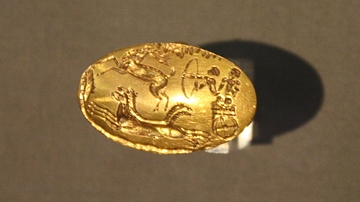
Image
Gold Ring from Mycenae
A Mycenaean gold ring depicting a hunting scene. From Grave Circle A, Mycenae, 16th century BCE. (National Archaeological Museum, Athens)
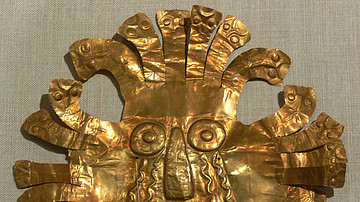
Image
Nazca Gold Mask
A beaten gold mask from the Nazca civilization of Peru, 200 BCE-500 CE. 18.4 x 20.5 cm. The mask may represent a shaman in transformational pose, a common motif in Nazca art. An alternative interpretation is that it represents the weeping...
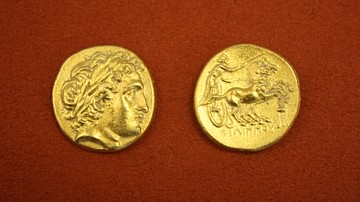
Image
Macedonian Gold Stater
Macedonian gold stater from the reign of Philip II, 359-356 BCE. O: Head of Apollo. R: Charioteer driving a racing biga.
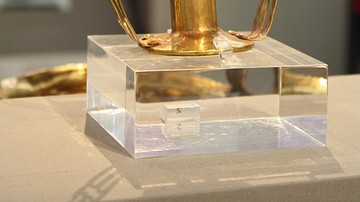
Image
Gold Stemmed Cup, Mycenae
A gold stemmed cup from Mycenae, often called the 'Cup of Nestor' following Homer's description. A dove rests on the top of each handle. 16th century BCE, Grave IV, Grave Circle A, Mycenae. (National Archaeological Museum, Athens)
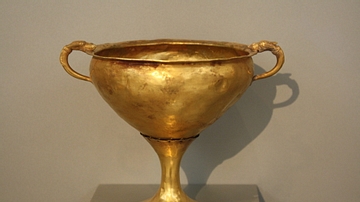
Image
Mycenaean Gold Cup
A gold Mycenaean cup with handles ending in dog's heads. 15th century BCE from Grave circle A, Mycenae. (National Archaeological Museum, Athens)

Image
Neolithic Gold Bead
A gold bead from the dolmen d'Er Roh, La Trinite Sur Mer, France, 2200-2000 BCE.
Vannes Archaeological Museum, France.
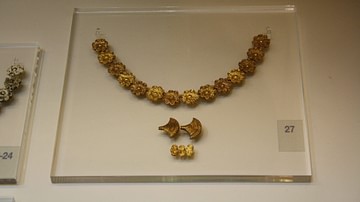
Image
Mycenaean Gold Jewellery Pieces
Strings of gold beads in the form of rosettes, papyrus and lillies from Mycenae area (14th century BCE). Nafplio Archaeological Museum.
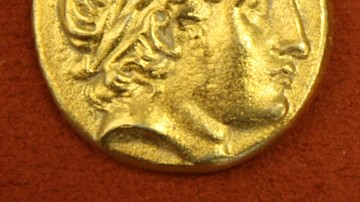
Image
Apollo, Macedonian Gold Stater
Macedonian gold stater, 359-336 BCE.
Obverse: Apollo
Reverse: Charioteer
Alpha Bank Numismatics Collection, Kerkyra, Corfu.
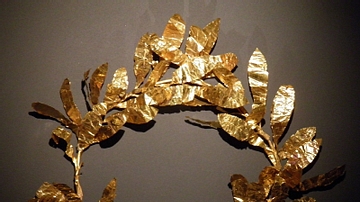
Image
Gold Olive wreath
4th century BCE gold Olive wreath from Macedonia, both a religious symbol and indicator of social position and power (Archaeological Museum, Thessaloniki, Greece)
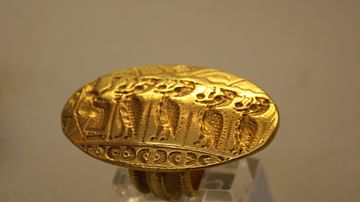
Image
Mycenaean Engraved Gold Ring
A gold ring from Mycenaean Tiryns, the largest such example. The engraved scene depicts lion-headed creatures in a religious procession carrying libation vases. On the left side is a seated goddess. 15th century BCE. (National Archaeological...